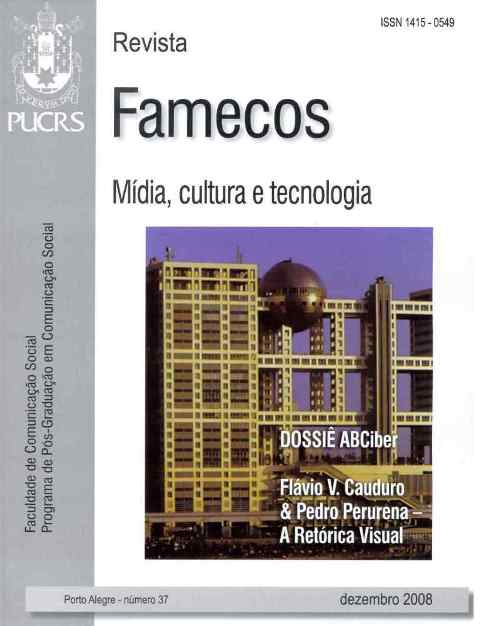Cyberculture, commons and informational feudalism
DOI:
https://doi.org/10.15448/1980-3729.2008.37.4804Keywords:
Cyberculture, information feudalism, commonsAbstract
The expansion of information networks consolidated the key elements of cyberculture, the remix and many collaborative practices. It also weakened the copyright and the brokerage industry. Exploring this scenario, the following exposure seeks to identify opposed trends in cyberspace between access to “free culture” and the imposition of a “permission culture.” With Lessig, Benkler and Smiers points of view it contextualizes the tension between creative possibilities of networks and the stiffening on the symbolic goods property rules. It evaluates Drahos and Braithwaite proposal of information feudalism as one of the most important projects in reconfiguring science and culture development and control, and which are the consequences of this control. It shows how this trend coexists with the idea of commons, one of the most important dimensions of cyberculture.Downloads
References
BENKLER, Yochai. The wealth of networks: how social production transforms markets and freedom. New Haven and London: Yale University Press, 2006.
DRAHOS, Peter; BRAITHWAITE, John. Information feudalism: who owns the knowledge economy? New York: The New Press, 2003.
JENKINS, Henry. Convergence Culture: la cultura de la convergencia de los mediso de comunicación. Barcelona: Ediciones Paidós, 2008.
LANDOW, George P. Hipertexto: la convergencia de la teoría crítica contemporánea y la tecnología. Barcelona: Ediciones Paidós, 1995.
LESSIG, Lawrence. Cultura Livre: como a grande mídia usa a tecnologia e a lei para bloquear a cultura e controlar a criatividade. São Paulo: Trama, 2005.
McLUHAN, Marshall. Os meios de comunicação como extensões do homem (Understanding Media). São Paulo: Editora Cultrix, 1986.
PISCITELLI, Alejandro. Ciberculturas 2.0: en la era de las máquinas inteligentes. Buenos Aires: Paidós, 2002.
SMIERS, Joost. Artes sob pressão: promovendo a diversidade cultural na era da globalização. São Paulo: Escrituras Editora : Instituto Pensarte, 2006.
WOLTON, Dominique. Internet e depois? Uma teoria crítica das novas mídias. Porto Alegre: Sulina, 2003.
Downloads
Published
How to Cite
Issue
Section
License
Copyright
The submission of originals to Revista Famecos implies the transfer by the authors of the right for publication. Authors retain copyright and grant the journal right of first publication. If the authors wish to include the same data into another publication, they must cite Revista Famecos as the site of original publication.
Creative Commons License
Except where otherwise specified, material published in this journal is licensed under a Creative Commons Attribution 4.0 International license, which allows unrestricted use, distribution and reproduction in any medium, provided the original publication is correctly cited.






